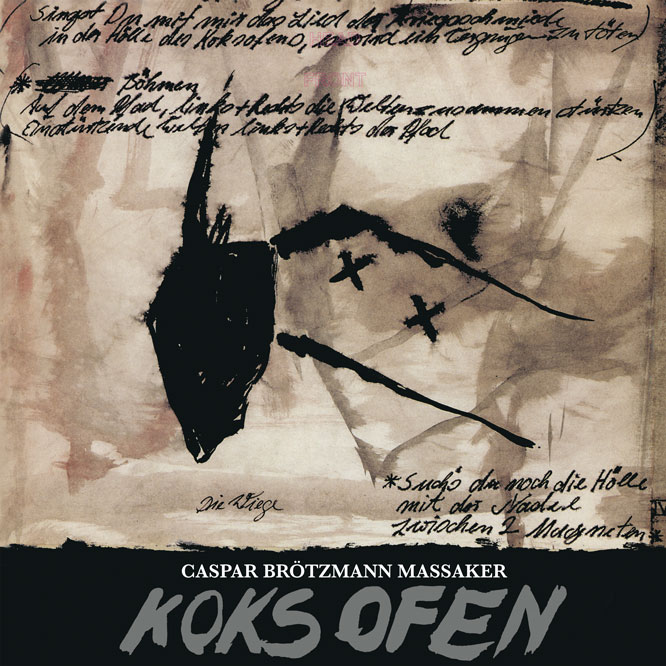Originally released in 1992, “Der Abend Der Schwarzen Folklore” is the third Massaker album, released by Rough Trade Germany. According to Caspar Brötzmann, the title track and “Bass Totem“ are the band’s most accomplished songs. It’s certainly the most sonicly refined of their albums, recorded during a residency over several weeks at the pastoral site of Conny Plank’s studio near Cologne, and produced by Ingo Krauss and Bruno Gebhard, who had worked with the famed Krautrock producer until his death in 1987.
Not least, …Schwarze Folklore also features their new drummer Danny Lommen, whom Caspar and bassist Eduardo Delgado had headhunted at a concert with Lommen’s Dutch prog-core band Gore. Lommen shared their tastes in sheer volume and presence, and “has a completely unique sound to his drumming“, as Caspar marvels, “he plays ultrahard and clear, with authority and no compromise, nothing, not even the most turbulent and speedy beats, sound fuzzy – a statement.“ This, he adds with a smile, would sometimes lead to intense moods during rehearsals, when he overpowered – no small feat – competing with the sounds of Caspar’s guitar.
and zee udder one:
Koksofen (which translates as blast furnace), originally released in 1993, has become one of Massaker’s most popular albums. Like it’s predecessor, …Schwarze Folklore, the album took shape in Massaker’s rehearsal room below the Berlin subway station Schlesisches Tor, and was recorded at Conny Plank’s studio near Cologne, with Plank’s former associates Ingo Krauss and Bruno Gephard producing. There’s a different kind of intensity to Koksofen. The features of Massaker’s sound are in full bloom. Mountainous noises tower up and crash down, and tormented sounds rise from ominously seething grounds, haunting the entire song-scape. The feel of doom and dread hangs heavily over the five songs, and the title song rumbles, shrieks and wails, plagued by Caspar’s guttural growls of war, suffering and death.
Caspar recalls one anecdote from shortly after the original release whereby Bassist Edu Delgado called him asking to turn on the TV, thus discovering that “Hymne“ was being used as background music to a report about the death penalty in the US. A different kind of intensity indeed. Reflecting on the album to this day Caspar remarks “Koksofen is still a mystery to me,” he continues “I can still feel the troubled times in these songs.” – the effects are certainly potent for the listener too. And the album undoubtedly affirms Massaker as the fiercely original and compellingly raw musicians that they are.
Listen!
Share

